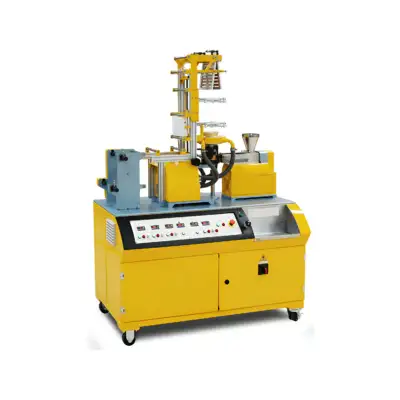Description
Technical Description:
Reactor Systems for Polymerization Reactions typically include several key components to facilitate different polymerization processes:
- Reactor Vessel: The core component, usually made from high-quality stainless steel or glass, which holds the reactants (monomers, solvents, initiators, etc.) during the polymerization reaction.
- Temperature Control: An essential feature for regulating the reaction temperature, typically achieved through jacketed vessels and circulating heating or cooling fluids. Temperature control is crucial to maintain consistent polymerization rates and desired molecular weight.
- Agitation System: Agitators or stirrers are used to ensure the uniform mixing of the reactants and maintain a homogeneous environment within the reactor. This system helps to avoid local overheating and ensures the efficiency of the reaction.
- Monomer and Initiator Feeding: Automated feeding systems allow for the precise addition of monomers, solvents, and initiators at a controlled rate. This ensures that the polymerization reaction proceeds in a controlled and efficient manner.
- Pressure Control: Polymerization reactions often take place under high pressure, especially in processes like solution and suspension polymerization. Pressure control systems maintain optimal pressure levels throughout the reaction process.
- Monitoring and Control: Advanced process control systems allow for real-time monitoring of critical parameters such as temperature, pressure, flow rate, and reaction time. These systems provide data acquisition and analysis capabilities for process optimization and quality control.
- Safety Features: Reactor systems are equipped with safety features such as overpressure protection, automatic shut-off systems, and safety relief valves to ensure safe operation during the polymerization process.
- Scale-Up Capability: These systems are often designed to be scalable, enabling the transition from laboratory-scale to pilot or industrial-scale production without significant changes to the operating conditions.
Technical Specifications (Tabular Format):
| Feature | Description |
|---|---|
| Model | Reactor Systems for Polymerization Reactions |
| Purpose | Designed for controlled polymerization of monomers into polymers using various polymerization techniques |
| Polymerization Processes | Bulk polymerization, solution polymerization, suspension polymerization, emulsion polymerization |
| Reactor Vessel | Typically stainless steel or glass, with optional jacket for temperature control |
| Temperature Control | Circulating heating or cooling fluids, accurate temperature regulation for reaction control |
| Agitation System | Motorized stirrers or agitators to ensure uniform mixing of reactants and efficient heat transfer |
| Monomer and Initiator Feeding | Automated or manual feed systems for monomers, initiators, and solvents |
| Pressure Control | Precise regulation of pressure, especially for high-pressure polymerization processes |
| Flow Rate Control | Precise control over the flow rates of reactants, monomers, and solvents |
| Reaction Monitoring | Digital control systems to monitor parameters like temperature, pressure, viscosity, and monomer conversion |
| Data Acquisition | Real-time data collection for reaction parameters; export options for further analysis |
| Safety Features | Overpressure relief, automatic shut-off, emergency shutdown protocols, and explosion-proof designs |
| Material Compatibility | Designed to process various monomers, solvents, and initiators suitable for different polymerization reactions |
| Scale-Up Capability | Scalable from laboratory-scale to pilot and full-scale production systems |
| Cleaning and Maintenance | Easy-to-clean systems to prevent contamination between batches; self-cleaning or manual cleaning options available |
| Control System | PLC or digital controllers for full automation of the polymerization process |
| Reactor Capacity | Available in various sizes (from lab-scale to industrial-scale reactors) for flexible use |
| Power Requirement | Standard electrical input for motor, temperature control, and control system |
| Environmental Compliance | Closed-loop systems to minimize emissions and waste products; safe disposal for reactant and byproduct removal |
| Applications | Plastics, pharmaceuticals, chemicals, adhesives, paints, coatings, rubber, and elastomers |







Reviews
There are no reviews yet.